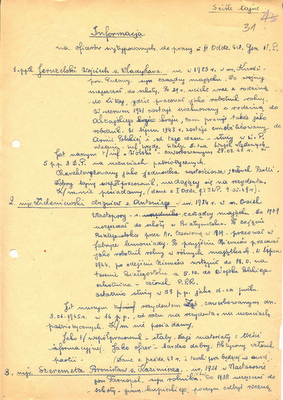Former Polish dicator Wojciech Jaruzelski, the military general whose imposition of martial law in 1981 failed to snuff out the pro-freedom movement in his country, was an agent of Soviet GRU military intelligence, archives show.
News of his secret collaboration with Stalin comes after the 81 year-old Jaruzelski said he wanted to set up a "truth commission" with former Solidarity leader and Polish President Lech Walesa to serve as an "independent" and "objective" platform for researching the country's troubled history.
He didn't like Walesa's proposal to have a commission under the control of the National Remembrance Institute, which looks unfavorably on the decades of Soviet rule.
Jaruzelski became a GRU agent shortly after World War II ended but before his country was under total Soviet control, according to remnants of his file which Polish researchers recently discovered.
According to the file, the GRU formally recruited Jaruzelski, whose cryptonym was "Wolski," on March 23, 1946.
As with many Soviet files, the name is misspelled, but according to Polish sources the file is definitely that of the former dictator. Jaruzelski's name is misspelled According to a biographical note compiled by an intelligence officer, Jaruzelski "Jeruzelski Wojciech."
The GRU termed Jaruzelski "a good secret collaborator, fit to be a resident" (
dobry tajny współpracownik, nadający się na rezydenta).
A "resident" or
rezident, in Soviet jargon, is head of a "residency" (
rezidentura), the chief of a KGB or GRU station abroad. The use of the word in the Jaruzelski file appears to refer to him as a potential leader of other secret collaborators.
The Soviets physically ran Polish military intelligence (Informacja Wojskowa) at the time, using GRU and Chekist officers, and essential documents in the nominally Polish service were generally written in Russian.
Despite the enthusiasm with which the US wishes to embrace Poland as one of the most reliable of NATO allies, the failure of Poland to de-Sovietize the current WSW military intelligence service presents continued, if unspoken, confidence problems.
It is unclear when - if ever - Jaruzelski stopped being a Soviet GRU agent.



